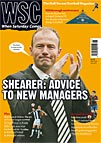 Under fire from managers and pundits, confidence in refereeing is being ruined by terrible public relations, writes Nik Johnson
Under fire from managers and pundits, confidence in refereeing is being ruined by terrible public relations, writes Nik Johnson
Referees are undergoing a crisis of confidence, their relations with managers and fans at an all time low. Not a weekend goes by without a manager appearing on Match of the Day to complain about a foul in the build-up to a goal, Andy Gray vehemently attacking a decision, or a 6.06 caller bitterly arguing that the referee cost them the game. Is the standard of refereeing so bad that games are routinely being ruined by their incompetence, or are there underlying problems that go further than just poor decision making?
Referees do a difficult job under tremendous pressure, and their efforts, which I believe are sincerely to uphold the laws of the game, are hampered by just about everyone. Watch next time the ball goes out for a goal-kick: players from both teams will appeal, even when one knows full well that the ball came off his shin. How is this cheating any different to diving to win a free-kick?
You can regularly catch a manager on the radio post-match, furious about a perceived foul in the build-up to an opposition goal. Steve Bruce did this following his team’s defeat to Chelsea, which MOTD2 uncharacteristically played back, showing that the foul – slight as it was – occurred two full minutes before the goal, a period in which Wigan had many opportunities to clear the ball. Bruce’s attempts to undermine the decision didn’t work on this occasion, but it won’t stop him from trying it again.
Does video playback inherently undermine a referee? No, in the same way that linesmen don’t. We have to acknowledge that a referee can’t see everything, and put in place measures to help. The accuracy of decisions made by a video replay far exceed the capabilities of any human. It takes Sky a matter of seconds to pull back play and show a close offside call from five or six different angles, from which they can castigate the officials, or begrudgingly agree that they made the right call. Fans at home are far more informed than the officials, making it easy to proclaim a decision “shocking”.
It hardly helps, either, that so many pundits and managers are allowed to misquote laws and use that as a stick to beat referees. There’s no mention of “daylight” being needed to call a player offside, or that “the benefit of the doubt has to go to…”, yet you’ll hear this tired misinformation repeatedly.
Which leads to the referee’s public image. As figures of authority, they’ll always be unpopular with someone, but referees are currently hampered by very poor PR. They are placed in a difficult position when justifying their decisions on the record – if they were to come out and say, “from where I was standing, it didn’t look like a push”, then it gives Alan Shearer carte blanche to smugly sit on Match of the Day and show (via a replay he has had all afternoon to look at) that it was a mistake. Follow this with a freezeframed snapshot in the Sun, and suddenly the referee has had a “shocker” and the caller on 6.06 is vindicated.
On the other hand, were they to apologise and acknowledge the mistake, then they’re setting themselves up to be reminded of that ad infinitum. Referees need someone to shield them from the press, while also being on hand to offer sensible and reasonable discussion of the match. Their current representatives in the media are Graham Poll in the Daily Mail, and rent-a-gob Jeff Winter on Sky Sports News. Both have refereed at the highest level but they also clamour for the spotlight, which means they will never shy away from a controversial opinion, thereby failing the “sensible and reasonable” criteria. Surely there must be someone else qualified and with enough media savvy to be able to talk us through decisions and help placate those who feel wronged.
This refereeing crisis is a convenient construct for managers, players and pundits alike; pot-shots are taken at a target that nobody seems prepared to defend. It’s easy to judge and complain when you have more information than the referee. We should be looking to give them more assistance, rather than berating them for only doing their best.
From WSC 267 May 2009